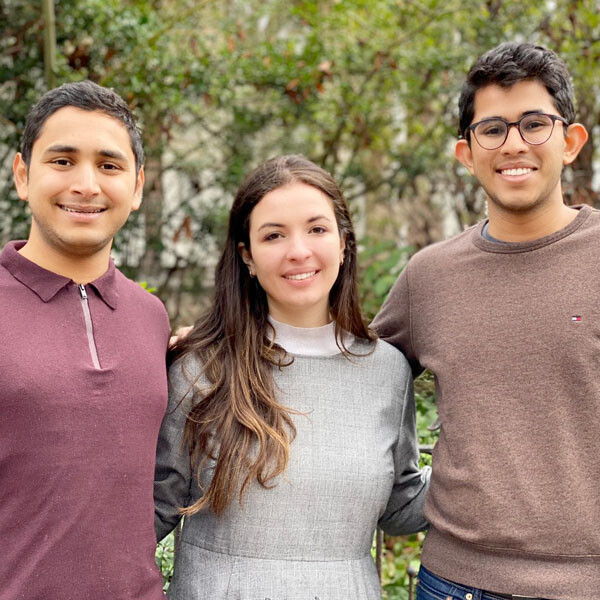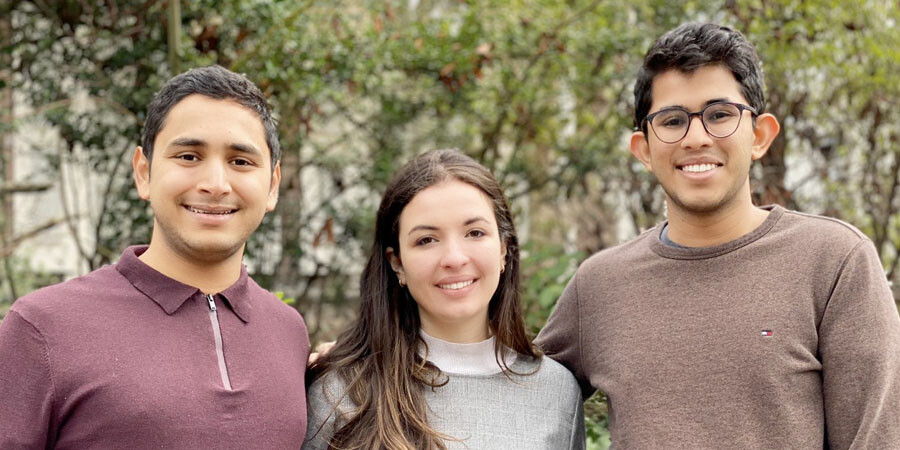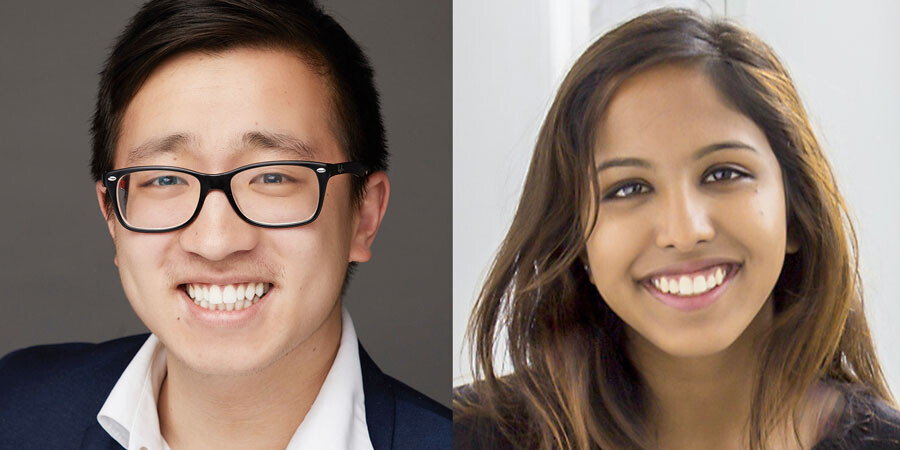While COVID-19 has exacerbated the dysfunction that can surround medicine delivery, how to effectively deliver and target medicines to those who need them has been on the minds of the Aarogya team for years.
Aarogya is a social-enterprise organization that was awarded the 2020 President’s Engagement Prize, an award founded by Penn President Amy Gutmann in 2015. The nonprofit, established in summer 2019 by Shivansh Inamdar, Artemis Panagopoulou, and Aditya Siroya, partners with pharmaceutical companies and charitable hospitals in India to find recipients for medications that have been returned to warehouses and are otherwise incinerated upon their expiry. This can be as much as 5 percent of all medicines that are destroyed before use, additionally costing 1.5-2.6 tons of carbon dioxide emissions per year. Hundreds of millions of Indian people live with chronic conditions like diabetes.
“India is the largest democracy on Earth, with over 1.3 billion people,” explains Gutmann. “Hundreds of millions have chronic health conditions, and many need medicines they can’t afford. It’s an enormous problem. Adi, Artemis, and Shivansh have a solution.”
“Our solution,” says Siroya, “is to reallocate these medicines to those most in need between that window of when they are sent back to the warehouse to when they are valid until the expiry.”
The mission stems from the experience of Inamdar, who grew up in India with a family of doctors—his father, a doctor of preventive and social medicine, and his grandmother, a pediatrician. Watching them work in small communities, he spent time in medical camps at a very young age and began volunteering with hospitals to set up health camps—“Whatever I could do to lend a hand,” Inamdar says.
“Trying to help with health care access in India has been something in the back of my head for a long time,” he adds. “I’ve learned here at Penn that with computer science technology, I can take a big crack at this problem, which is a bigger crack than volunteering at hospitals, at a far larger scale and in a more sustainable way.”
Aarogya, which means “freedom from disease” in Sanskrit, reduces medicine wastage by using a digital redistribution platform, with a decentralized blockchain system set up for traceability. Hospitals list medicines they need, pharmaceutical companies share what medications they have, and an innovative algorithm matches their needs. Shipments are tracked using a QR code.
Since last spring, the team has developed the platform on their own—a pivot from originally intending to hire third-party developers for it—and released their MVP (minimum viable product) on Nov. 30. They have begun testing with hospitals and pharmaceutical companies in India and are in the process of receiving feedback from those partners to further improve the platform. Development of that platform, the team explains, was initially meant to happen after additional on-the-ground experience with moving medicines, but the pandemic necessitated remote work, and building the platform did not require face-to-face contact.
Panagopoulou says partners have been very flexible during the pandemic and cooperated to make changes to their platform, as necessary.
“For example, in our original design we thought the available medicines should not be viewable by charitable institutions … our rationale was we didn’t want any over-ordering of medicines from that side. However, after conversations with partners, we saw that having them viewable would be more helpful because charitable institutions would be able to guide different camps according to what medicine is available.”
They also originally intended to hire officers to accompany the medicines throughout the transit process. However, because of social-distancing guidelines, they could not have the officers and drivers exposed unnecessarily. They instead plan to use funds they didn’t use this past year for quality assurance improvements in the coming year, related to the logistics chain.
“We’ve overall tried to keep the operation as lean as possible and not throw too many funds at it,” says Inamdar.
The year ahead will involve a hiring process for developers and lawyers in India, improved features for medicine tracking, and integration with WhatsApp. For now, they are focusing on matching charitable hospitals with diabetes and blood pressure medication, and learning more.
“The team has persevered past the hardest obstacle to any innovation: working through the local situation, understanding regulations, and taking stakeholder interests into account,” says Mark Pauly, the team’s mentor and a professor of healthcare management in the Wharton School. “From this point onward, implementation should be much more assured. Now, we wait to see how the benefits to those in need materialize.”



